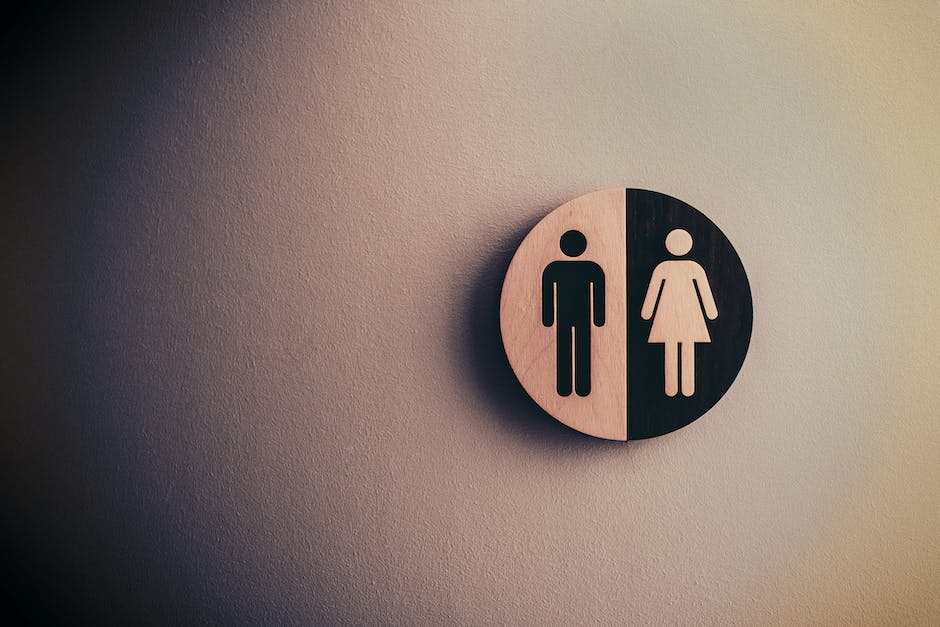Table of Contents
- Introduction
- The Role of Global Leadership in Advancing Gender Equality
- Promoting Women’s Empowerment through Global Leadership Initiatives
- Achievements and Challenges in Gender Equality: A Global Leadership Perspective
- Future Prospects for Gender Equality: Insights from Global Leadership Efforts
- Q&A
- Conclusion
“Empowering Minds, Uniting Nations: Advancing Gender Equality on the Global Stage”
Introduction
Global Leadership and the Quest for Gender Equality: Progress in 2023
In recent years, the pursuit of gender equality has gained significant momentum on a global scale. As we enter the year 2023, it is crucial to assess the progress made in achieving gender equality in leadership positions worldwide. This introduction aims to provide an overview of the advancements made in this area, highlighting the efforts and initiatives that have contributed to narrowing the gender gap in leadership roles. By examining the current state of global leadership and the quest for gender equality, we can gain insights into the strides made and the challenges that still lie ahead.
The Role of Global Leadership in Advancing Gender Equality

Global Leadership and the Quest for Gender Equality: Progress in 2023
The Role of Global Leadership in Advancing Gender Equality
Gender equality has long been a pressing issue worldwide, with women facing various forms of discrimination and inequality in both developed and developing countries. However, in recent years, there has been a growing recognition of the importance of gender equality and the need for global leadership to address this issue. Global leaders play a crucial role in advancing gender equality by setting policies, promoting awareness, and fostering a culture of inclusivity.
One of the key ways in which global leaders contribute to advancing gender equality is through the formulation and implementation of policies that promote equal opportunities for women. These policies can range from ensuring equal pay for equal work to providing access to education and healthcare for women and girls. By enacting such policies, global leaders send a clear message that gender equality is a priority and that discrimination against women will not be tolerated.
Moreover, global leaders have the power to influence public opinion and shape societal norms. Through their speeches, public appearances, and engagement with the media, they can raise awareness about the importance of gender equality and challenge existing stereotypes and biases. By using their platform to advocate for gender equality, global leaders can inspire individuals and communities to take action and work towards a more inclusive and equitable society.
In addition to policies and awareness-raising, global leaders also have a responsibility to foster a culture of inclusivity within their own organizations and institutions. This means promoting diversity and inclusion at all levels, from the boardroom to the grassroots. By ensuring that women have equal representation and opportunities within their organizations, global leaders can set an example for others to follow and create a more inclusive and equitable working environment.
Furthermore, global leaders can leverage their influence to support and empower women leaders around the world. By providing mentorship, resources, and networking opportunities, they can help women overcome the barriers they face in accessing leadership positions. This not only benefits individual women but also contributes to the overall advancement of gender equality by increasing the representation of women in decision-making processes.
While progress has been made in advancing gender equality, there is still much work to be done. Global leaders must continue to prioritize gender equality and take concrete actions to address the remaining challenges. This includes addressing the root causes of gender inequality, such as harmful cultural norms and discriminatory laws, and working towards their elimination.
Moreover, global leaders must ensure that their efforts to advance gender equality are intersectional and inclusive. This means recognizing and addressing the unique challenges faced by women from marginalized communities, including women of color, indigenous women, and women with disabilities. By adopting an intersectional approach, global leaders can ensure that no woman is left behind in the quest for gender equality.
In conclusion, global leadership plays a crucial role in advancing gender equality. Through the formulation of policies, promotion of awareness, fostering of inclusivity, and support for women leaders, global leaders can contribute to creating a more equitable and inclusive world. However, the journey towards gender equality is far from over, and global leaders must continue to prioritize this issue and take concrete actions to address the remaining challenges. By doing so, we can hope to see further progress in the quest for gender equality in the year 2023 and beyond.
Promoting Women’s Empowerment through Global Leadership Initiatives
Promoting Women’s Empowerment through Global Leadership Initiatives
In recent years, there has been a growing recognition of the importance of gender equality in achieving sustainable development and global prosperity. As a result, global leadership initiatives have emerged to promote women’s empowerment and bridge the gender gap in various sectors. These initiatives aim to create a more inclusive and equitable world, where women have equal opportunities to participate in decision-making processes and contribute to the development of their communities and nations.
One such initiative is the United Nations’ Sustainable Development Goals (SDGs), which include a specific target (Goal 5) to achieve gender equality and empower all women and girls by 2030. This goal recognizes that gender equality is not only a fundamental human right but also a necessary foundation for a peaceful, prosperous, and sustainable world. To achieve this goal, global leaders have been working towards eliminating gender-based discrimination and violence, promoting women’s economic empowerment, and increasing women’s representation in leadership positions.
Significant progress has been made in promoting women’s economic empowerment through global leadership initiatives. For instance, the Women Entrepreneurs Finance Initiative (We-Fi) was launched in 2017 to address the financing gap faced by women-led businesses in developing countries. We-Fi provides financial and technical assistance to women entrepreneurs, helping them access capital, markets, and networks. By supporting women’s economic empowerment, We-Fi aims to unlock the potential of women entrepreneurs as drivers of economic growth and poverty reduction.
Another important global leadership initiative is the Women Political Leaders (WPL) network, which brings together female political leaders from around the world to promote gender equality in politics. WPL provides a platform for women leaders to share experiences, exchange best practices, and advocate for policies that advance women’s political participation. Through its various programs and events, WPL aims to increase the number of women in political leadership positions and create a more inclusive and representative political landscape.
In addition to these initiatives, global leaders have been working towards increasing women’s representation in leadership positions across sectors. The 30% Club, for example, is a global campaign that aims to achieve a minimum of 30% women on corporate boards. By encouraging companies to adopt diversity targets and implement strategies to promote gender diversity, the 30% Club seeks to create a more balanced and inclusive business environment. This initiative recognizes that diverse leadership teams are more effective, innovative, and better equipped to address the challenges of the 21st century.
While progress has been made in promoting women’s empowerment through global leadership initiatives, there is still much work to be done. Gender-based discrimination and violence persist in many parts of the world, limiting women’s opportunities and stifling their potential. Moreover, women continue to be underrepresented in decision-making processes, both in the public and private sectors. To address these challenges, global leaders must continue to prioritize gender equality and invest in initiatives that empower women and girls.
In conclusion, global leadership initiatives play a crucial role in promoting women’s empowerment and advancing gender equality. Through initiatives such as the SDGs, We-Fi, WPL, and the 30% Club, global leaders are working towards eliminating gender-based discrimination, promoting women’s economic empowerment, and increasing women’s representation in leadership positions. While progress has been made, there is still much work to be done to achieve true gender equality. By continuing to prioritize gender equality and investing in initiatives that empower women and girls, global leaders can create a more inclusive and equitable world for all.
Achievements and Challenges in Gender Equality: A Global Leadership Perspective
Achievements and Challenges in Gender Equality: A Global Leadership Perspective
Gender equality has long been a pressing issue worldwide, and global leaders have made significant strides in recent years to address this issue. As we enter 2023, it is important to reflect on the achievements and challenges that have shaped the quest for gender equality.
One of the most notable achievements in the pursuit of gender equality is the increased representation of women in leadership positions. In many countries, women have broken through the glass ceiling and assumed roles of power and influence. This shift is not only a victory for women’s rights but also a testament to the power of inclusive leadership. By embracing diversity and promoting gender equality, global leaders have created a more equitable and just society.
Furthermore, global leaders have recognized the importance of empowering women economically. Through initiatives such as microfinance programs and entrepreneurship training, women have gained access to financial resources and opportunities. This has not only improved their economic well-being but has also contributed to the overall development of their communities. By investing in women’s economic empowerment, global leaders have fostered sustainable growth and reduced poverty levels.
Education has also been a key focus for global leaders in their efforts to achieve gender equality. Access to quality education is crucial for empowering women and girls, as it equips them with the knowledge and skills necessary to participate fully in society. In recent years, there has been a significant increase in girls’ enrollment rates in primary and secondary education. This progress is a testament to the commitment of global leaders to ensure equal educational opportunities for all.
Despite these achievements, challenges remain in the quest for gender equality. One of the most significant challenges is the persistence of gender-based violence. Women and girls continue to face various forms of violence, including domestic violence, sexual assault, and human trafficking. Global leaders must prioritize the eradication of gender-based violence by implementing comprehensive legal frameworks, providing support services for survivors, and promoting a culture of respect and equality.
Another challenge is the persistent gender pay gap. Despite progress in many areas, women still earn less than men for the same work. This pay gap not only perpetuates economic inequality but also undermines the value of women’s contributions to society. Global leaders must work towards closing the gender pay gap by implementing fair pay policies, promoting transparency in salary negotiations, and challenging societal norms that perpetuate gender-based discrimination.
Additionally, the underrepresentation of women in politics and decision-making positions remains a significant challenge. While progress has been made, women are still underrepresented in parliaments, cabinets, and corporate boardrooms. Global leaders must continue to advocate for gender-balanced representation and create an enabling environment for women to participate in decision-making processes.
In conclusion, global leaders have made significant achievements in the quest for gender equality. Increased representation of women in leadership positions, empowerment through economic opportunities, and improved access to education are just a few examples of the progress that has been made. However, challenges such as gender-based violence, the gender pay gap, and underrepresentation in decision-making positions persist. As we move forward in 2023, it is crucial for global leaders to build on these achievements and address these challenges to create a more equitable and inclusive world for all.
Future Prospects for Gender Equality: Insights from Global Leadership Efforts
Global Leadership and the Quest for Gender Equality: Progress in 2023
In recent years, the global community has made significant strides towards achieving gender equality. Efforts led by global leaders have played a crucial role in driving this progress. As we look towards the future, it is important to examine the prospects for gender equality and gain insights from the ongoing global leadership efforts.
One of the key areas where global leadership has made a difference is in promoting women’s political participation. In many countries, women have historically been underrepresented in political decision-making processes. However, global leaders have been actively working towards changing this narrative. Through initiatives such as the United Nations’ “HeForShe” campaign, leaders have been advocating for increased representation of women in politics. This has resulted in more women being elected to positions of power and influence, leading to a more balanced and inclusive political landscape.
Another area where global leadership has made significant progress is in promoting women’s economic empowerment. It is widely recognized that gender equality is not just a matter of social justice, but also an economic imperative. When women are empowered economically, it benefits not only them but also their families, communities, and the overall economy. Global leaders have been working towards creating an enabling environment for women to thrive in the workforce. This includes initiatives such as promoting equal pay for equal work, providing access to quality education and training, and supporting women entrepreneurs. These efforts have resulted in increased economic opportunities for women and a narrowing of the gender pay gap.
Education is another crucial aspect of achieving gender equality, and global leaders have been at the forefront of promoting girls’ education. It is well-established that education is a powerful tool for empowering individuals and breaking the cycle of poverty. However, girls have historically faced barriers to accessing education, including cultural norms, discrimination, and lack of resources. Global leaders have been working tirelessly to address these challenges and ensure that girls have equal access to quality education. Through initiatives such as the Global Partnership for Education, leaders have been mobilizing resources and advocating for policies that promote girls’ education. As a result, more girls are now able to attend school, and the gender gap in education is gradually closing.
While significant progress has been made, there is still much work to be done. Global leaders must continue to prioritize gender equality and address the remaining challenges. This includes tackling deep-rooted cultural norms and stereotypes that perpetuate gender inequality, addressing violence against women, and ensuring equal access to healthcare and reproductive rights. It is also important for leaders to engage men and boys in the conversation and promote gender equality as a shared responsibility.
In conclusion, global leadership efforts have played a crucial role in driving progress towards gender equality. Through initiatives focused on political participation, economic empowerment, and education, leaders have made significant strides in narrowing the gender gap. However, there is still much work to be done, and leaders must continue to prioritize gender equality and address the remaining challenges. By doing so, we can create a more inclusive and equitable world for all.
Q&A
1. What is the current status of global leadership in terms of gender equality in 2023?
Progress has been made towards achieving gender equality in global leadership positions in 2023, but there is still work to be done.
2. What are some key advancements that have been made in global leadership and gender equality in 2023?
Efforts have been made to increase the representation of women in leadership roles, with more women occupying positions of power and influence globally.
3. What are some challenges that still exist in achieving gender equality in global leadership?
Persistent gender biases and stereotypes continue to hinder progress towards gender equality in global leadership. Additionally, structural barriers and lack of opportunities for women remain challenges.
4. What are some potential solutions to further promote gender equality in global leadership?
Promoting inclusive policies, implementing quotas or targets for women’s representation in leadership positions, and providing equal opportunities for women to access leadership roles are potential solutions to further promote gender equality in global leadership.
Conclusion
In conclusion, the quest for gender equality has made progress in 2023, particularly in the realm of global leadership. Efforts have been made to increase the representation of women in leadership positions, resulting in more diverse and inclusive decision-making processes. However, there is still work to be done to achieve full gender equality, as barriers and biases persist. Continued efforts and commitment from individuals, organizations, and governments are necessary to ensure further advancements in global leadership and gender equality.




